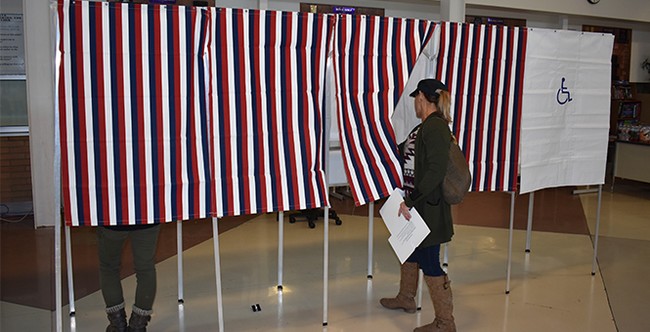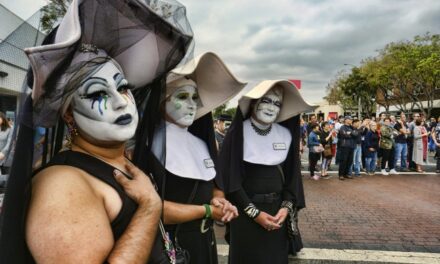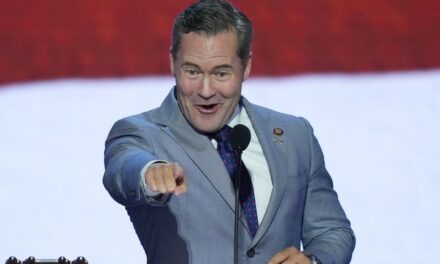We support our Publishers and Content Creators. You can view this story on their website by CLICKING HERE.

As we approach one of the most consequential elections in recent memory, there’s a surprising trend that’s slipping under the radar: the quiet apathy of undecided voters.
Advertisement
While past election cycles saw last-minute surges of enthusiasm or decisive swings towards one candidate, this year, many of those who haven’t made up their minds may not be planning to vote at all. And that tells us a lot about the current state of both major parties and the overall political landscape in 2024.
Disillusioned or Disengaged? Apathy Is in the Air
NBC News has this story out for the weekend about how independents in their most recent polling feel about the election. Overall, it doesn’t give you a promising feel about the state of the democratic process in America.
At this point, undecided voters generally fall into two categories: they’re either disillusioned with the options or disconnected from the process altogether. This year, we seem to be seeing a lot of both.
With polls just days away, these voters are signaling a level of disinterest that’s hard to ignore. Many Americans, worn down by years of political mudslinging and polarizing rhetoric, have simply tuned out. For them, skipping Election Day may feel less like an act of apathy and more like a small act of self-preservation.
When voter enthusiasm wanes, turnout tends to follow suit. And turnout, as we all know, is the heartbeat of any democracy. While we’ve heard plenty of speculation about a “red wave” or a “blue surge,” neither appears to have captured the public’s imagination this cycle. Instead, voter fatigue might be the real victor, with millions likely to opt out of the electoral process altogether.
Advertisement
Sure, there has been a surge in early voting, but is that real voter enthusiasm or are your more active voters just getting an early start?
Both Parties Are Failing to Reach Independent Voters
The failure of both Democrats and Republicans to connect with independent and undecided voters is glaring.
These voters are often the ones who tip close races, yet this year, it seems as if both parties have completely missed the mark. Instead of addressing the real concerns of average Americans, both sides are relying on stale talking points and fear-based messaging that no longer resonates.
Independent voters, especially, are left feeling politically homeless. The issues that matter most to them—economic stability, national security, and a sense of unity—are often sidelined in favor of partisan bickering. If either party genuinely sought to engage these voters with fresh ideas and substantive solutions, the story might be different. Instead, both have settled into a predictable routine, leaving independents unimpressed and uninterested.
Undecided Voters Are Likely to Stay Home
Studies have consistently shown that undecided voters close to Election Day are more likely to skip the polls altogether. According to research from Tufts University, undecided voters are often more disengaged, meaning they lack the motivation to participate when they don’t feel their voices matter. This year’s landscape—dominated by extreme partisanship and a sense that neither party truly represents the people—only reinforces this trend.
Advertisement
When voters feel disconnected from the process, they check out. And that’s not just a blow to one party or another; it’s a blow to the democratic process itself. High voter engagement is a sign of a healthy democracy, but when large segments of the population feel they’re not making a difference, they withdraw.
What a Low Turnout Could Mean for America
If Tuesday’s turnout does end up lower than expected, it sends a powerful message: people are fed up. This goes beyond dissatisfaction with specific candidates; it’s an indictment of the system as a whole. A low-turnout election raises serious questions about how well our political system is serving the people it claims to represent.
When neither major party can inspire people to show up, it’s a wake-up call for those in power. Politicians love to speak about “representing the people,” but if large numbers of those people are staying home, it’s a sign that they’re waiting for something better—a candidate or a cause truly worth voting for.
The Real Message: Voters Want Change, Not More of the Same
This election, perhaps more than any in recent years, underscores a simple truth: American voters are tired of politics as usual. They want leaders who listen, not just talk. They’re looking for ideas that go beyond the predictable party lines, for a vision that brings people together rather than drives them apart.
Advertisement
Right now, neither major party is delivering that. And if they continue down this path, they risk alienating even more of the electorate in the years to come.
So as pundits analyze the results and strategists start planning for the next cycle, they should pay attention to this silent group of voters. The undecided, disillusioned, and disengaged voters are sending a clear signal: they’re ready to check out of a system that’s stopped working for them. If our political leaders don’t recognize this warning, they may soon find themselves talking to an even smaller, more partisan audience, while the rest of the country sits out.

 Conservative
Conservative  Search
Search Trending
Trending Current News
Current News 





